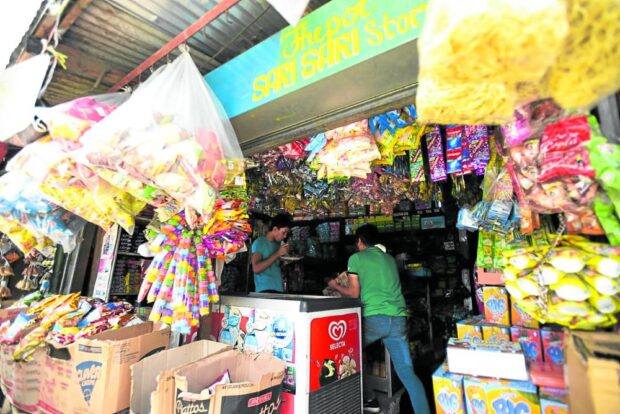New microfinancing service focuses on ‘sari-sari’ stores

IN THE HOOD There are 1.3 million “sari-sari” stores across the country serving 94 percent of Filipinos. —Contributed photo
MANILA -Philippine analytics startup Packworks has partnered with Cebuana Lhuillier and local finance firm 1Sari Financing Corp to offer microfinancing to “sari-sari” stores in the Philippines, with the aim to reach 270,000 of these small neighborhood retail shops.
Packworks, which offers a business-to-business marketplace of fast-moving consumer goods for sari-sari stores, has forged the partnership with the two financial service providers to deliver affordable and accessible services to micro retails stores.
“Sari-sari stores significantly contribute to the economic fabric of the Philippines. Our objective is to enhance financial inclusion, tap into untapped growth potential, and fortify the foundation of our retail industry,” Packworks co-founder and chief executive officer (CEO) Bing Tan said in a statement.
“We are actively pursuing these goals through strategic partnerships aimed at providing accessible and affordable financial services to empower the sari-sari store sector,” he added.
READ: Alliance builds tech-enabled future for ‘sari-sari’ stores
In line with offering a credit line to sari-sari stores in the Philippines, Packworks said it would also tie up with social development organization Bayan Academy through a program called the SariSkwela program.
This SariSkwela program provides sari-sari stores access to learning modules on micro entrepreneurship that teaches knowledge and skills needed to enhance their businesses.
Formal financial services
Citing the results of the 2022 Annual Report on National Strategy for Financial Inclusion (NSFI) by the Bangko Sentral ng Pilipinas (BSP), the Packworks highlighted that micro-enterprises use significantly fewer formal financial services than small and medium enterprises.
READ: FINTQ: ‘Sachet Banking’ is key to reaching unbanked Filipinos
The company said that one of the main challenges they see is the stringent requirements set by formal financial institutions.
It added that many micro, small and medium enterprises (MSMEs) lack knowledge about available financial services and how to access them.
This lack of access to regulated credit and financing programs, according to the firm, forces these relatively smaller enterprises to live cash-in-hand and unable to get loans which limits their growth potential.
According to the data from the Philippine Statistics Authority (PSA), 99.5 percent of businesses in the country are MSMEs, making them the backbone of the Philippine economy.
Of the total, about 90 percent are micro enterprises, or businesses which have less than ten employees.
Majority of these MSMEs are engaged in wholesale and retail trade, motor vehicles and motorcycles repair, food services, and manufacturing.